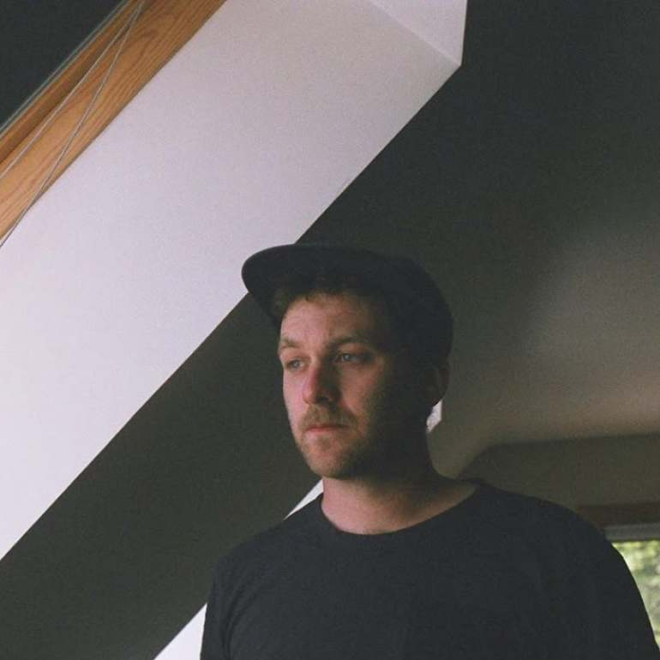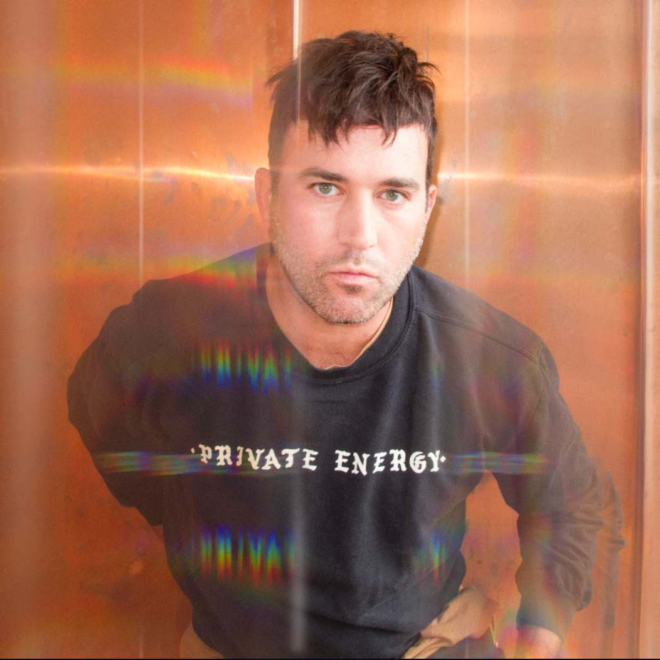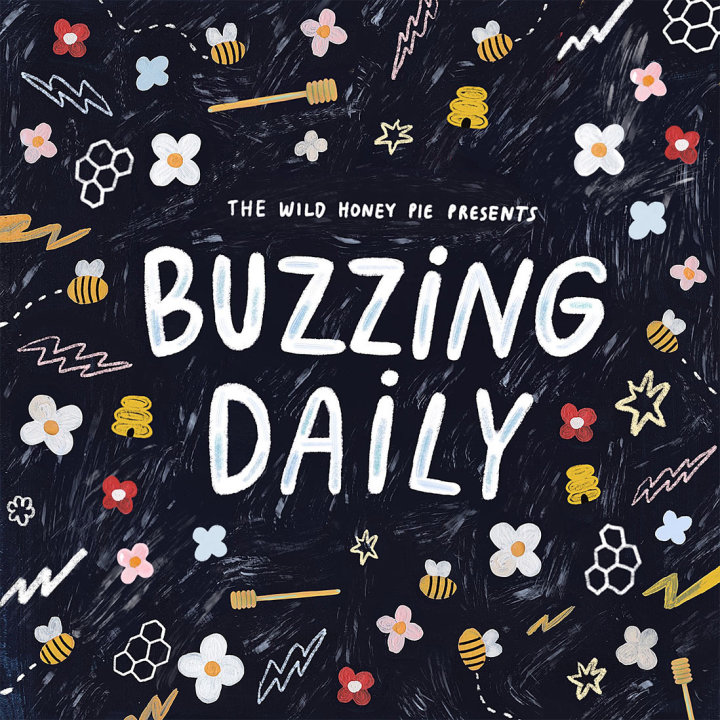


 BOYO - Analyze This
BOYO - Analyze This
The creative mind behind BOYO, Robert Tilden (they/them), has yet again fashioned tracks that balance uplifting beats and grounding lyrics in their second LP of 2020, Alone Together in Los Angeles. This record further illustrates their sonic development and growth as an artist. Emotionally, this record comes with a much desired brighter feel, a contrast felt to the anxiety, albeit beautiful, that was so prevalent in their first LP of 2020, Where Have All My Friends Gone? which pulled so much from their experience of dealing with the uncertainties of facing a 2017 medical scare.
For Alone Together in Los Angeles, that anxiety seems to have slipped away while still keeping the lyrics that question and comment on the nostalgia and realities of life. In "Analyze This" specifically, a light but stirring chord adds an extra layer of playfulness to the bit of comedic commentary that the lyrics themselves give. Tilden’s interest in social anxieties is felt as they sing on our day-to-day interactions and the way one might look back on moments and scrutinize the minute details – something we all found ourselves doing while stuck in quarantine. “You could laugh, choose to laugh / Analyze this, analyze that,” a reminder that it can all be a joke and a memory unless you let it keep nagging you in the back of your mind until you go mad.
Tilden has even said they drew from Stephen Malkmus for this song, and it’s an influence that’s easily heard in the pairing of the socially observational lyrics paired with the upbeat and catchy chords reminiscent of Malkmus’ "Juliefuckingette" or "Ballad of a Thin Man." Photo by Tanner Lemoine.
— Monica Hand on February 3, 2021


 Cape Francis - Home
Cape Francis - Home
It’s 2020 and by now there is an undeniable Cape Francis sound, a careful simplicity around musical arrangements that allows for big cinematic feeling without ever broaching the realm of dramatic. “Home” is this year’s third single from Kevin Olken Henthorn’s solo project, and it slides easily into place. With the signature finger-picked electric guitar and soft horns lent by The Westerlies, the gentle heartbeat of percussion keeps every element grounded while we, the listeners, are transported to somewhere a little calmer, more reflective of the past and future.
The winds of change are blowing and I’m reminded of the age-old allegory about the two trees weathering a storm, the story that councils us to bend, not break when faced with adversity. "Home" follows a similar idea, acknowledging what can’t be fought and that sometimes it’s best to let yourself be led down the path the universe has chosen for you, regardless if that path is hard and full of unknowns. We’ve all heard it before, it’s about the journey, not the destination, and sometimes that’s how the notion of ‘home’ can be defined as well. Pierced by lyrics like, “Standing out like a lightning rod / still aflame by the burns I’ve got,” it’s important to be mindful that we’re all grappling with our own trauma, and each of us is carrying our own baggage until we get to a place where we can finally put it down.
After many years on the east coast, Cape Francis will become an LA-based project by the beginning of September 2020.
— Shasha Léonard on August 26, 2020


 ØZWALD - It Was
ØZWALD - It Was
Teaming with hazy and melancholic harmonies, “It Was” from ØZWALD’s latest LP Head Movies is simultaneously haunting and serene. The subject of the song—if one does exist—is impossible to determine given its enigmatic lyrics, yet, the shadow it casts can’t but help to garner the attention of those who listen.
“It Was” employs limited, but purposeful, instrumentation, ensuring that the most central element of the track is the meditative atmosphere it creates through the resurgence of its lingering chorus. The vocals are delicate and airy, yet seeped with unambiguous urgency—encouraging us to question our initial sonic perceptions and insinuating that what we hear is just the tip of a conceptual iceberg.
— Lilly Rothman on August 26, 2020


 My Morning Jacket - Beautiful Love (Wasn’t Enough)
My Morning Jacket - Beautiful Love (Wasn’t Enough)
After five years’ time, My Morning Jacket has freely given the kin-songs of their album The Waterfall with the release of The Waterfall II. Included in this release is a track called “Beautiful Love (Wasn’t Enough)” which draws on the notion that even when someone gives their all in love, it is not always liable to fulfill in the way that love is often promised to do. Starting off with a romantic and celestial piano solo, the track exemplifies what it feels like to drop into the mystery of love with another person. However, it takes on a new shape once the vocals come in. Things become heavier as the notion of not feeling the same way settles into the bones of the track.
— Laney Esper on August 26, 2020


 Melanie Faye - Jump
Melanie Faye - Jump
A gem from her debut EP, Melanie Faye’s “Jump” is a minimalist tune that sits in the space between labels, aching in longing while looking for a way out. Co-written by Natalia Kills and Cautious Clay, the simplicity of her rhymes meld into a yearning guitar-driven melody. "Awkwardly timin', my nodding and smilin' / Don't say too much, don't make you run," she sings coyly, before she becomes the one who gets away: "I'll jump, jump, jump, jump, jump." The extended instrumental outro showcases her guitar prowess as her repeated falsetto “jump” bounces in the distance like a farewell kiss blown to a lover before a free fall. Having gained traction with more than a few masterful collaborations under her belt, the Melanie Faye EP follows singles like “It’s A Moot Point” and “Eternally 12” with Mac Demarco, quietly asserting her presence in today's neo-soul scene.
— Ysabella Monton on August 25, 2020
Cut Copy - Like Breaking Glass
On “Like Breaking Glass,” the third single from Cut Copy’s upcoming album Freeze, Melt, the group manages to bottle the magic recipe of prime 80s synthpop. With programmed drums and glittering arpeggio, the Australia-based band turns heartbreak into a shimmering work of art—quite literally, as the group partnered with American contemporary artists Takeshi Murata and Christopher Rutledge to produce a striking visual piece of slow-flying glass to accompany the release. In just under five minutes, Cut Copy nostalgically nods to groups like New Order, A Flock of Seagulls, and Orchestral Manoeuvres in the Dark while maintaining a modern crispness akin to alt-pop acts like Perfume Genius, Future Islands, and Miami Horror. Soaked in reverb, lead singer Dan Whitford cooly croons, “When the world comes down / And breaks in two / I could dance in the silence / And think of you”—a sentiment aptly suited for the zeitgeist, and one we can dance away our worries to, trading in disco balls and strobe lights for sunlit windows while working from home.
— Heddy Edwards on August 25, 2020


 Plási - Where I Belong
Plási - Where I Belong
Swedish-Greek singer-songwriter and producer, Plási tells a story of passionate self-discovery on "Where I Belong." Channeling a yearning that is universally relatable, Plási takes the listener through his search of finding his place in the world—in old passions and new—with his signature folk riffs. The accompanying video is nostalgic (if not dream-like) in nature, making us long for home, whatever that means for each of us.
After the sun goes down,
and all that's left is the dried salt on your skin,
you choose your words more carefully.
They linger now,
like sea glass in the sand where a wave once stood.
Together, and all at once, you come to understand:
the castles you built will be here, still,
even if the fragments return back to the tide,
even if you stay.
— Amy Lima on August 25, 2020


 Xelli Island - 02 20 20
Xelli Island - 02 20 20
Half-Filipina vocalist, songwriter and self-proclaimed shapeshifter, Lianna Vanicelli concocts ethereal tracks with a tropical twist. It’s a little Grimes, a lot Beach House. Xelli Island paints us familiar scenes from a normal day, presumably February 20, 2020. Hustling downtown on the train to make a shift, racing to someone else’s door. The beat is well-paced to a sense of urgency. “Try not to think about it, what could go wrong,” she sings, as if trying to prevent an endless feedback loop of anxieties and pressure that accompany being young and trying to make it in a city. The glitchy feedback that disrupts the pre-chorus is a nice touch. According to Vanicelli, the synth-heavy track is about experiencing serendipity, and “thinking about the millions of little things that have to work properly in order for anything to happen.” Stay tuned for an EP dropping later this year.
— Corinne Osnos on August 24, 2020


 Sufjan Stevens - Video Game
Sufjan Stevens - Video Game
One thing about Sufjan Stevens is that there is basically no telling what his new music will sound like. This has been true now for two full decades. Sure, there are some elements you can predict pretty safely. It’s pretty likely that the song will contain earnest and somewhat poetic lyrics scattered with Christian mythological imagery. It will almost certainly feature his iconic sandpapery vocals, and it could very well be anchored by its interesting rhythmic patterns. Other than that, part of the joy of a Sufjan release is the lead-up to inevitable surprise. Where will the new release lie in the field of artistic breadth that he has always tended to so methodically? Will the track break down into unpleasant screeching guitar after a 9-minute chant? Or will it plod on with pleasant banjo or piano for two minutes and call it quits? Will it sound basically acoustic with sneaky subtle electronic effects? Or will it bleep and bloop all over the place like a robot fever dream?
In my estimation, “Video Game” is the farthest Stevens has gone down the rabbit hole of melodic electronic music since his 2010 album, Age of Adz. And, in the iconic words of Bernie Sanders, let me be very clear: I am super here for it. Although I was originally hooked as a teen by the lush and folksy orchestration in albums like Michigan, I’ve always held a special place in my heart for electro-Sufjan. In fact, it is my suspicion that the world of electronics is where Stevens feels most comfortable, most able to invent. In the case of “Video Game,” the effect is something like "faux futuristic,” and the “faux" feels intentional to me. Maybe that’s because the lyrics are also focused on fakeness—specifically, renouncing repeatedly all the fake value of celebrity. In a statement about the song, Stevens says, “I think we should all be doing our best work without looking for accolades or seeking reward.” That genuinely sounds really nice, and I think there is truth in it. But also, Sufjan, if you’re reading this: I really, really like your new song. Will you sign my t-shirt?
— Karl Snyder on August 24, 2020


 City Dress - Missouri Boy
City Dress - Missouri Boy
As "Missouri Boy" opens, the urgent fingerpicking and open-ended wails create an instant tension. It’s almost as though the instruments are pulling time in different directions while the kick keeps us grounded. A fitting feeling for a song whose lyrics mirror the same balance. A reflection on a past relationship, trying to move beyond it while still thinking about what could have been. As City Dress repeats “I try” over and over, the lyric seems to struggle with the same. Across the verse gentle, gorgeous harmonies add depth to an intimate vocal. The bass and piano arrive, a beautiful pair that gives the song even more heft. The chorus's release into “See Me” is so pure, so authentic, such a visceral emotional release. You can feel her ask, “Is that too much to want?”—still swept up in this struggle between righting wrongs and moving on. It’s the first time the band is in concert, a powerful moment that elevates her plea even further. The bridge leans into the song’s most vulnerable side, a swaying softness, almost like a leaf drifting down to the ground, a story that winds up sad but lands easy. City Dress comes full circle leaving the song as she returns to the “I try” refrain, this time, beyond the tension, she continues to move forward. City Dress continues to impress with vulnerable and human stories shared over thoughtful guitar-led instrumentals.
— Max Himelhoch on August 24, 2020


 Halo Kitsch - f l a w l e s s
Halo Kitsch - f l a w l e s s
Summer was almost over, and there wasn’t a lot to do in the city except call up Halo and sit by the waters on the piers and watch the tinier boats and jet skis shoot ripples into the lapis ocean. Cordless phone to my ear, I pulled a couple blinds down with my left index finger as I eyed the sun. It was ready to set. Halo picked up on the third ring. She sounded happy. She had just recorded a song called “f l a w l e s s,” and I picked her up so she could show it to me in person, near the water because she wanted me to hear it with the sound of the waves in the background. Once we parked and settled in on the pier, she started to play the song off her phone.
"f l a w l e s s" is the latest from LA indie-pop singer/songwriter Halo Kitsch. Halo, of course, is not just a homage to Beyoncé’s hit, but the word for the crown that adorns the heads of angels. Kitsch is any art, object, or design considered to be in poor taste because of excessive garishness or sentimentality, but sometimes appreciated in an ironic or knowing way. Her song is all about denying her flawlessness and instead embracing her flaws. She makes her subject see her for who she really is. Maybe that’s real love.
— Mustafa Abubaker on August 21, 2020










